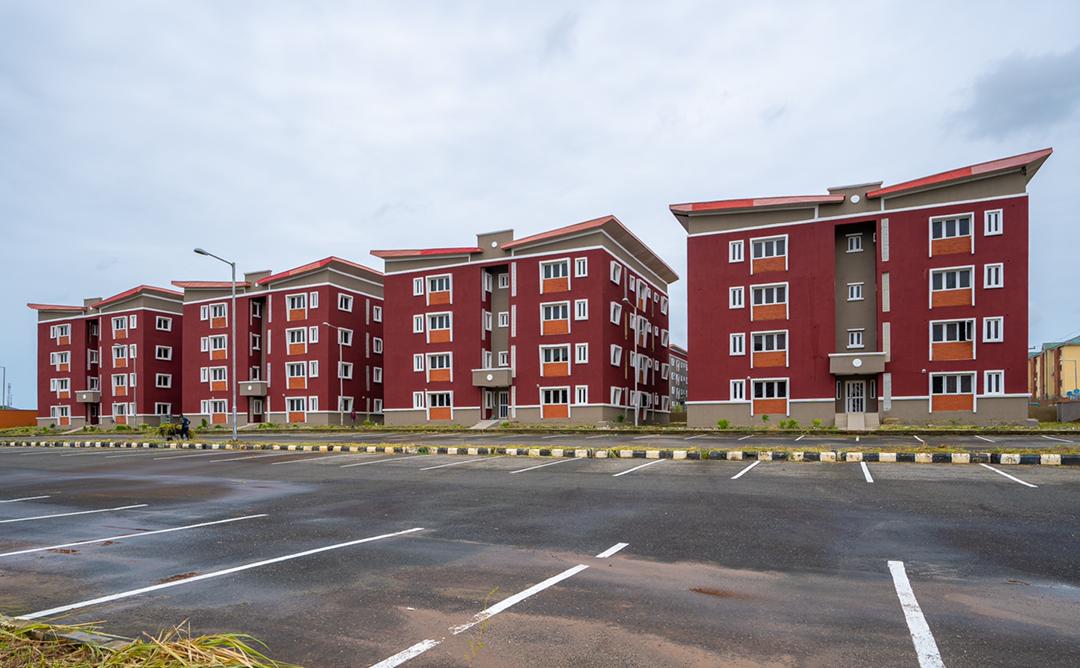As Nigerians struggle to access loans due to strict collateral requirements in real estate investments, experts have advocated expanding access to affordable financing for women in the country.
A real estate professional, Mrs Mojisola Afolayan, stressed the need for government-backed credit schemes, like the National Credit Guarantee Company, which should be tailored to support women, especially first-time investors.
Afolayan made the call at the launch of a new book, “Chic Doing Real Estate”, authored by her, in Lagos. The forum attracted former deputy governor of Lagos, Dr Femi Pedro, President, International Real Estate Federation (FIABCI)-Africa and Near East Region, Adele Adeniji, President, FIABCI-Nigeria, Akin Opatola, Pastor Omowunmi Idowu of Harvester International Christian Centre, Lagos, Lead Pastor of Manifold International Church, Gideon Mba and Chairman, Lagos branch of the Nigerian Institution of Estate Surveyors and Valuers, Mr Gbenga Ismail, friends and families.
Afolayan said with focused policy and inclusive financial systems, the government can unlock a wave of women-led growth in the real estate sector, especially in thriving urban centres.
In Africa—and particularly in Nigeria—women face significant barriers to property ownership and real estate investment. In Lagos, where land and housing costs are high, these challenges are more pronounced.
According to the World Bank, only 10.75 per cent of Nigerian women own housing (solely or jointly), compared to 40.5 per cent of men. This gap is largely due to limited access to financing, lack of legal protection, and socio-cultural norms.
To strengthen property rights for women, she emphasised legal reforms that guarantee women’s rights to own, inherit, and register property, as well as prioritising enforceable policies that will empower more women to invest without fear of discrimination or dispossession.
“The government should support real estate education and financial literacy programmes targeted at women. With the right knowledge, more women can make informed investment decisions and build wealth through property.
“Encouraging cooperatives, like Relive Housing, which can help women co-invest and own property. Government partnerships with such platforms can scale impact and bridge the gender wealth gap in housing,” she said.
She explained that the book was written to bridge the gap between women, particularly young professionals, entrepreneurs, and aspiring homeowners, and link them to accessible real estate investment opportunities. Afolayan said that for too long, the narrative around property ownership has excluded or discouraged women, often positioning real estate as a pursuit reserved for the wealthy, married, or already successful.
She said: “We are solving the problem of limited access to real estate education, capital, and collaborative investment platforms for women and everyday individuals. We’re demystifying the investment process and showing that you don’t have to wait until you have it all figured out or all the money saved before you can own property. The book also introduces our broader vision through the Relive Housing Cooperative, a powerful vehicle that allows individuals to save consistently and invest collectively in real estate projects.”
Afolayan lamented that women in the sector often face systemic, financial, and societal barriers that hinder their participation and growth. She said that one of the pressing challenges is access to capital, as many women struggle with the financial entry point required for property investment.
“There’s a persistent lack of representation and visibility. The sector is still largely male-dominated, and women often feel isolated or unsupported, particularly when entering the field for the first time. There are fewer mentorship and networking opportunities tailored specifically to women, which makes it more difficult for them to access credible information and navigate the complexities of the industry,” she added.
In a keynote address, Pedro, who commended the author for documenting information on why women need to invest, harped on building wealth through co-investing and collaboration, adding that men must encourage their spouses to invest in real estate as its value never declines.
He urged women to be intentional about wealth creation, put their money into income-generating assets, develop good character, integrity, learn and understand the art of investing and be disciplined about money by prioritising investment rather than spending resources on liabilities.
Idowu, who is the wife of Lead Pastor, Harvester International Christian Centre, encouraged women to leverage the power of community, collaboration for growth and development in real estate investment, adding that the days of competition are gone, but that of collaboration.
Experts advocate credit scheme to enhance homeownership






